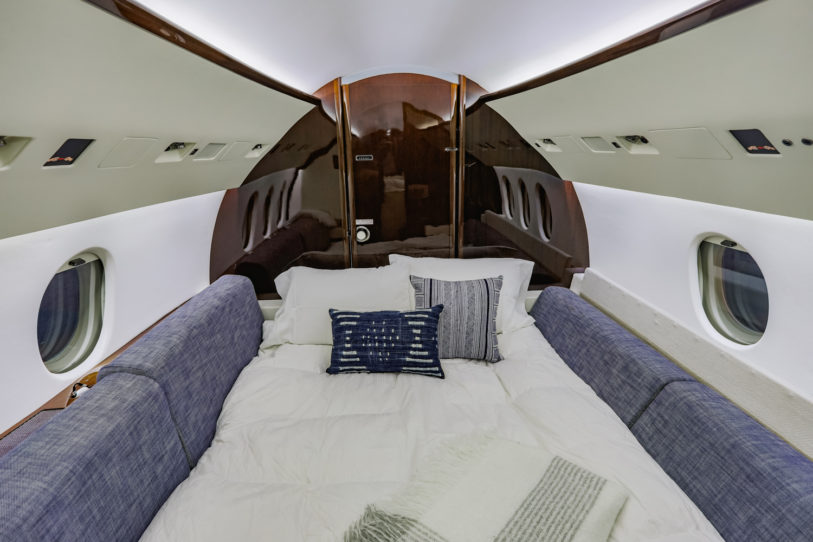Good sleep is vital to a great travel experience. Every person has a circadian window, an optimal period at night and in the early morning when the body wants to rest. Traveling between time zones or at odd hours of the night on a flight can wreak havoc on your circadian window. Rather than take a prescription sleep aid to help you snooze, there are several natural ways to keep sleep disturbances to a minimum. Try these natural ways to sleep better on your next private jet flight.
Make a Sleep Strategy
If traveling across more than two time zones, move your bedtime earlier or later, depending on the destination, a few days before your flight. Because it takes a body one day per time zone to adjust, altering your bedtime can help ease the transition.
Consider the Timing of Your Flight
The luxury of chartering a flight is that you have the final say on when it departs. Use this to your advantage. If you want to sleep soon after landing, for example, schedule your flight so it lands at night and do your best to stay awake on the plane.
Follow the Two-Day Rule
If you’re traveling to a different time zone for just a couple of days, do your best to keep to your normal at-home routine. Do this by requesting that meetings and other obligations be held during the equivalent of your peak waking hours at home. For example, if traveling from the West Coast to the East Coast, request to have meetings at noon instead of at 9:00 a.m.
Book the Quietest West-Facing Hotel Room
When booking a room, one of the last things you want is to be disturbed by noise or light. Ask for the quietest room (usually on a hotel’s upper levels) that faces west. Doing this will keep noise levels lower and prevent the sun’s rays from blasting into your room in the early morning as you sleep.
Stay Hydrated During the Flight …
Airplanes are arid, making it simpler for your body and skin to become dehydrated. Drinking plenty of water during your flight will help keep grogginess to a minimum during your travels.
… But Avoid Alcohol
Because of air pressure in a plane’s cabin, one alcoholic beverage in the air equals about two on the ground. Drinking alcohol on a plane will dehydrate you faster and make it more difficult to fall asleep.
Medical specialists also advise against drinking alcohol with prescription sleep aids. Not only is the combination dangerous, it can also make you feel disoriented.
Limit Your Screen Time
If flying during the night to arrive at your destination during the day, limit your use of electronic devices and try to sleep. The blue light in screens stimulates the production of serotonin and cortisol, chemicals in your body that tell it to be awake and active. When exposed to darkness, the brain converts serotonin to melatonin to help you relax and sleep. Powering down electronics when it’s time to rest—whether you’re traveling or at home—promotes overall good sleep hygiene.
Consider Melatonin Supplements
Melatonin levels in your body naturally rise about two hours before you’re ready to sleep thanks to your circadian window. When traveling, your body might need a bit of help settling down or adjusting to time differences. A melatonin supplement may help shift your circadian rhythm. It’s a good idea to speak to a medical professional to learn if the supplement is right for you. Because the supplement is available in various strengths, up to 10 milligrams, it’s wise to try a low dose before your trip to see how your body responds.

